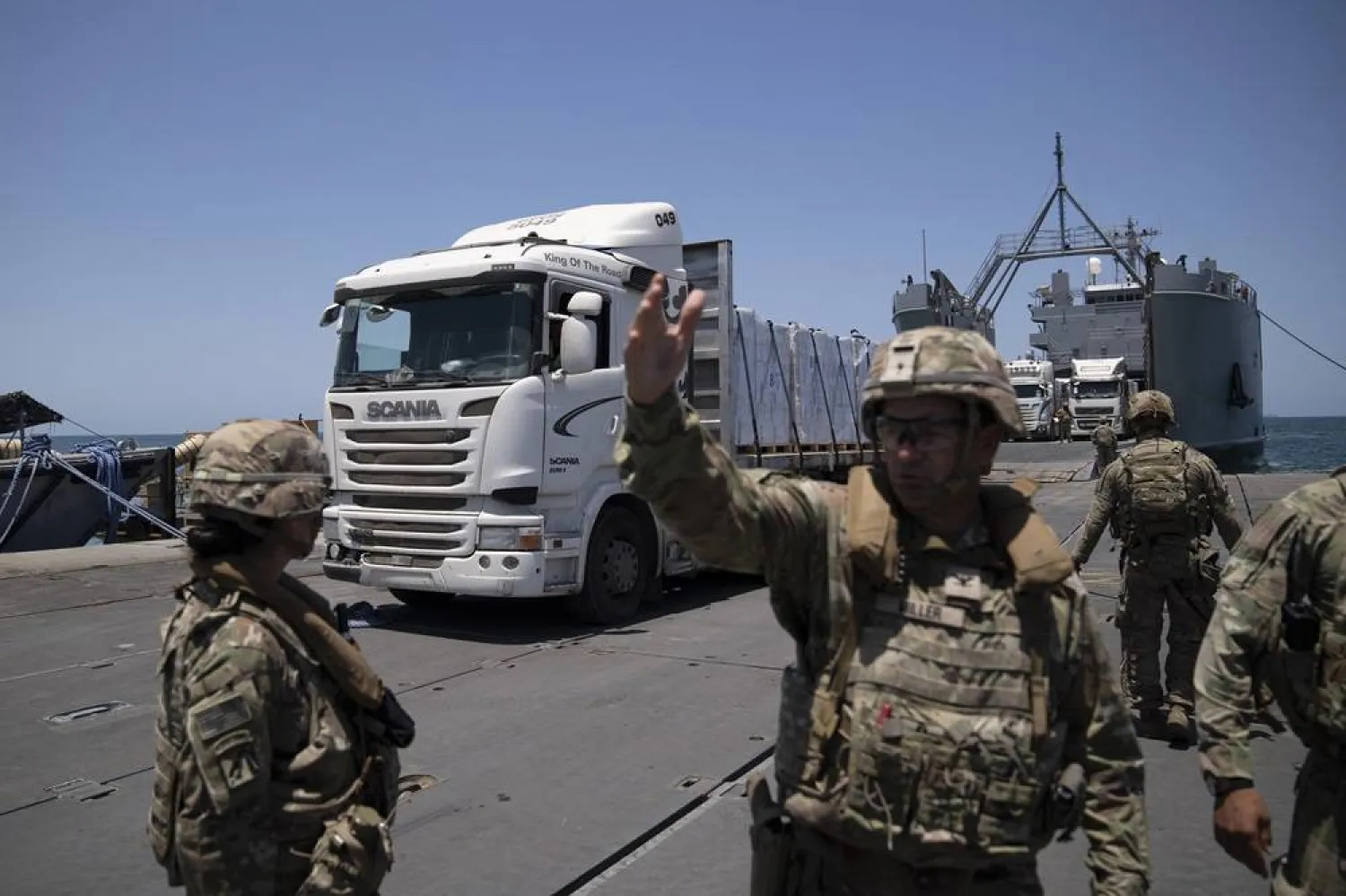The Republican lawmaker who leads the House Armed Services Committee has written to the Biden administration formally demanding it shut down its aid pier off the coast Gaza, calling the operation ineffective, risky and a waste of money.
The offshore floating pier, announced by Biden in March as a response to the threat of famine in the Gaza Strip, was constructed off the coast of the enclave by the US military as a way to bring in food and other aid supplies.
The US military has been authorized to operate it until the end of July, but a US Agency for International Development official said this week that the administration could seek to extend it for at least another month.
"I urge the Administration to immediately cease this failed operation before further catastrophe occurs and consider alternative means of land and air-based humanitarian aid delivery," House Armed Services Committee Chairman Mike Rogers wrote in a letter seen by Reuters.
The letter, sent to White House National Security Advisor Jake Sullivan, Defense Secretary Lloyd Austin and Secretary of State Antony Blinken, has not been previously reported.
Rogers has long opposed the pier and has called in the past for it to be dismantled, but he had not previously expressed that view in a formal written letter to the administration.
His armed services committee is the Pentagon's top oversight body in the House of Representatives, and formal requests from its chairman traditionally require a response from Pentagon officials.
Aid first began arriving via the US-built pier on May 17 into Gaza, where nearly all the 2.3 million residents have been displaced by Israel's campaign against the Hamas movement.
But rough seas have damaged the pier, forcing repairs, and poor weather has limited the number of days the pier has been operational. Most of the supplies that have reached the shore have yet to be distributed by UN aid agencies which say their operations have been limited by insecurity.
"As of June 19, JLOTS had only been operational about 10 days and had only moved 3,415 metric tons onto the beach in Gaza," Rogers wrote, using the US military's acronym for the pier system, known as Joint Logistics Over the Shore.
According to US military data, as of Tuesday, 8,332 pallets had been delivered via the pier. But around 84% of them have been sitting on Gaza's coast in a marshalling area waiting to be picked up by the United Nations for distribution.
The World Food Program paused deliveries earlier this month over security concerns.
Reuters was given rare access to the US military-run pier off Gaza on Tuesday and saw aid pallets being moved from a vessel onto the 1,200-foot (370 m)-long pier as it bobbed around with the incoming waves. The pallets were then taken by trucks to the coast.
The operation is complex, involving about 1,000 US military personnel. The Pentagon estimates the first 90 days of operation will cost about $230 million.
Rogers also noted that three US servicemembers suffered non-combat injuries while deployed on the operation.
"I urge the Administration to immediately cease this failed operation before further catastrophe occurs and consider alternative means of land and air-based humanitarian aid delivery," Rogers wrote.









